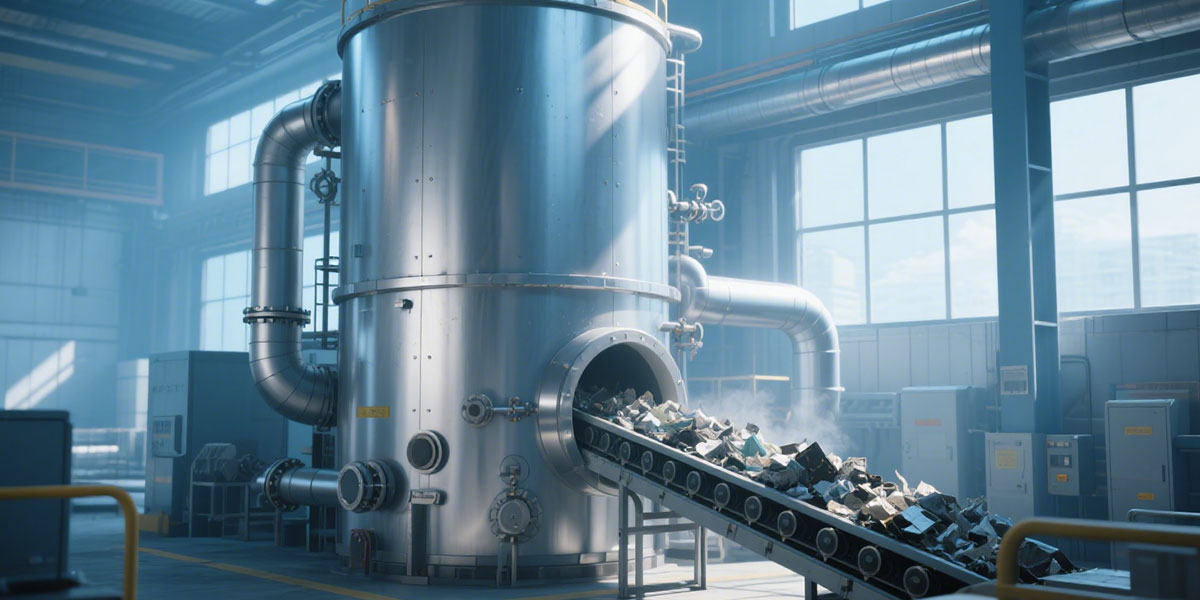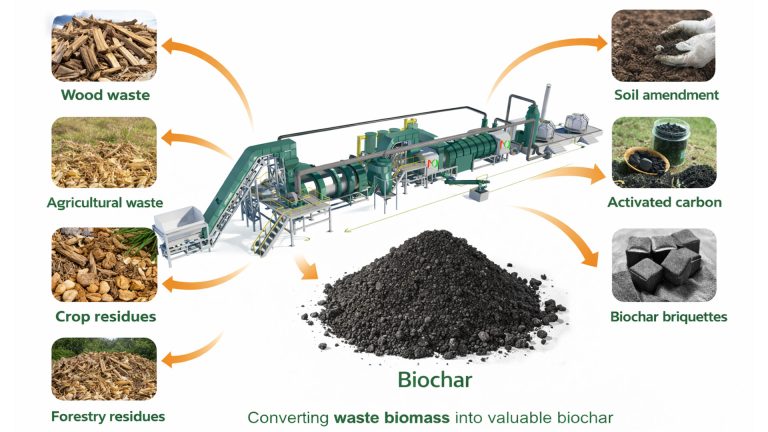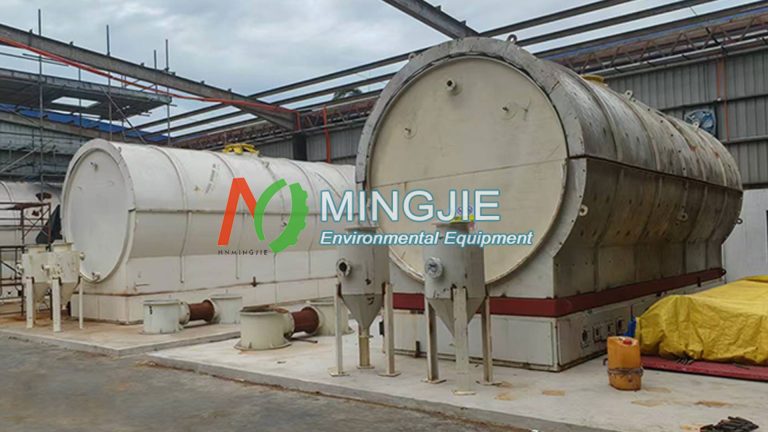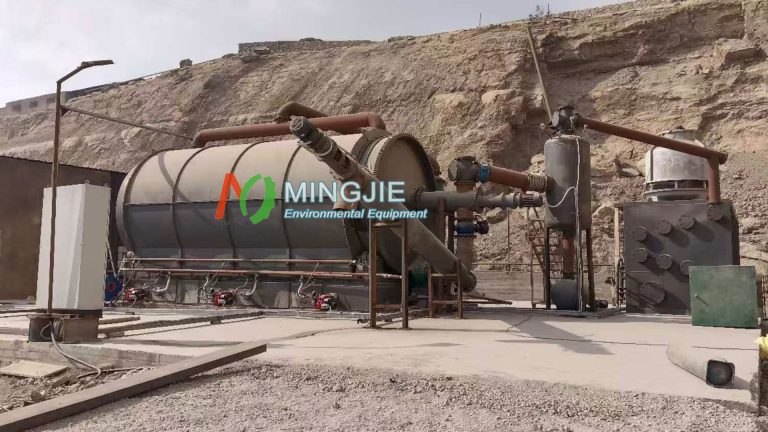Pyrolysis in solid waste management is an important thermochemical treatment technology. It heats organic waste in an oxygen-free or oxygen-deficient environment to cause chemical decomposition. Ultimately, solid waste is converted into combustible gas, liquid pyrolysis oil and solid residue carbon black. Pyrolysis is essentially different from incineration: incineration is an oxidation reaction, while pyrolysis is a decomposition reaction.
Pyrolysis technology is considered an important component of an integrated waste management strategy. It has unique advantages in achieving waste reduction, resource recovery and energy conversion. It is particularly suitable for treating specific organic wastes that are difficult to degrade (such as tires and plastics). Its core value lies in pyrolysis waste to energy with relatively low environmental pollution risks.
The optimization of continuous pyrolysis equipment, the application of pyrolysis products, and favorable policies are promoting the wider application of pyrolysis in solid waste management.
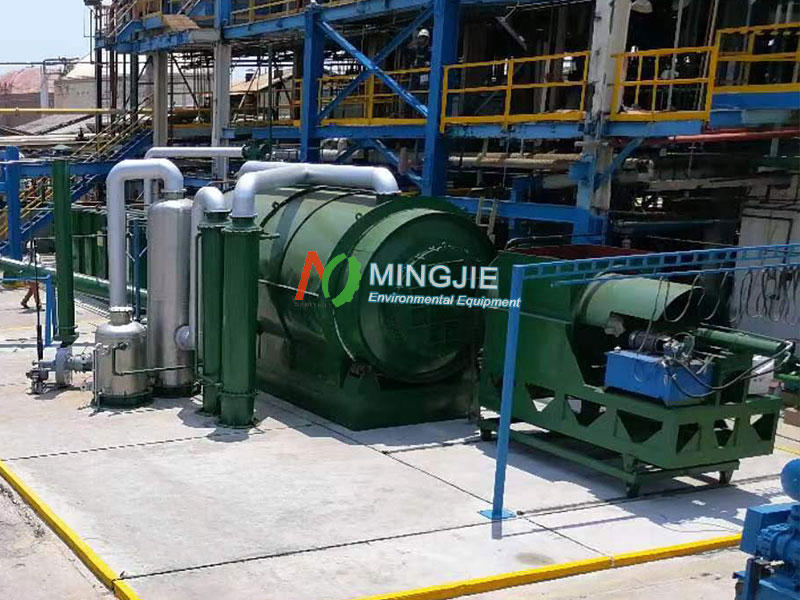
Multiple Applications of Pyrolysis in Solid Waste Management
Municipal Solid Waste Disposal
Municipal solid waste disposal has always been a thorny problem, and pyrolysis technology has brought new solutions to municipal solid waste disposal. Treating domestic waste through pyrolysis technology can convert a large amount of organic waste into valuable resources and achieve energy recovery. It can also significantly reduce the amount of landfilled garbage and alleviate the problem of land resource shortage.
Municipal solid waste contains a large amount of organic matter, such as plastic, paper, wood, etc. Pyrolysis technology can heat and decompose these organic wastes in an oxygen-free or oxygen-deficient environment and convert them into syngas, bio-oil and biochar.
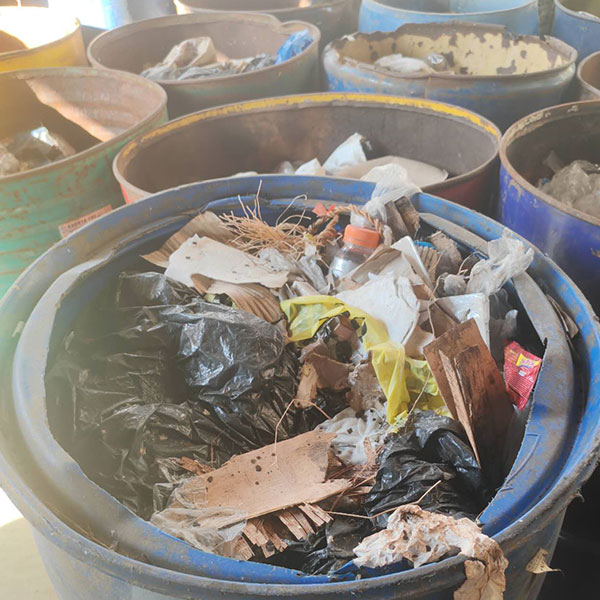
Mingjie Group customizes different pyrolysis equipment according to different raw materials to maximize the efficiency of pyrolysis technology. Our plastic pyrolysis plant mainly processes waste plastics in domestic waste and converts them into pyrolysis oil, carbon black and syngas. Biomass carbonization plant mainly process biomass (wood) and convert them into biochar, tar and syngas.
Industrial Solid Waste Treatment
A large amount of waste is generated during industrial production, such as sewage sludge, industrial waste residue. If these wastes are not properly handled, they will cause serious pollution to the environment. Pyrolysis technology plays an important role in industrial waste treatment. It converts organic matter in sludge into synthetic gas, liquid oil and solid charcoal.
The main pyrolysis product of sludge is charcoal. Mingjie Biomass Carbonization Plant can maximize the recycling of sludge. The oil sludge pyrolysis plant is mainly used to treat oily sludge. It achieves the reduction, harmlessness and resource treatment of sludge.
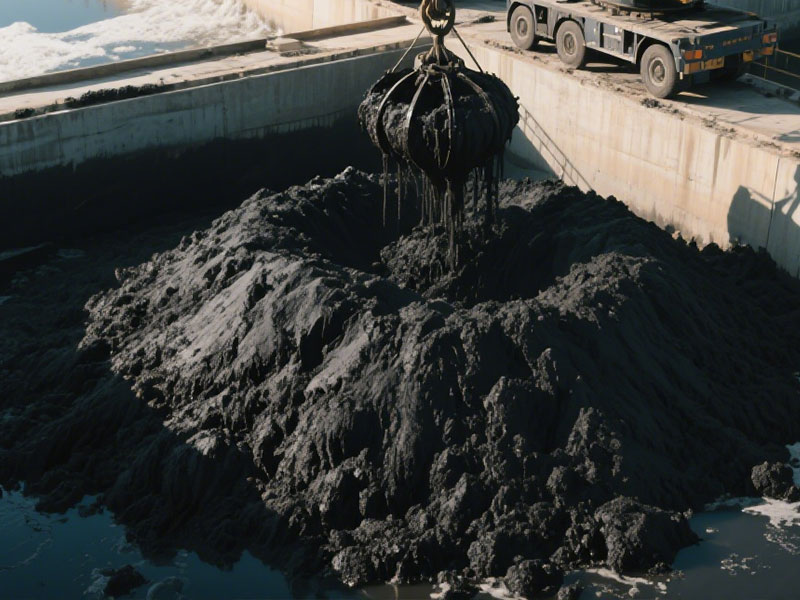
Special Solid Waste Treatment
Waste tires have always been a difficult point in solid waste treatment due to their complex composition and difficulty in degradation. Traditional landfill or incineration methods not only waste resources, but also cause environmental pollution. Tire pyrolysis plant can convert waste tires into pyrolysis oil, syngas, steel wire and carbon black.
Pyrolysis oil can be used as fuel oil, and synthesis gas can be used to heat the pyrolysis reactor. Carbon black can be used in rubber, ink and other industries. Steel wire can be recycled to the smelter for reuse.
Challenges of Pyrolysis Technology
Although pyrolysis in solid waste management has shown many advantages, it still faces some challenges in practical application.
With the continuous advancement of science and technology, pyrolysis technology will continue to iterate and update. On the one hand, more efficient and stable pyrolysis equipment and processes are developed. This can improve pyrolysis efficiency and product quality and reduce energy consumption.
For example, the structure and material of the pyrolysis reactor are improved, and advanced heating and temperature control technology is adopted. This can achieve precise control of the pyrolysis process and further increase the added value of the pyrolysis products.
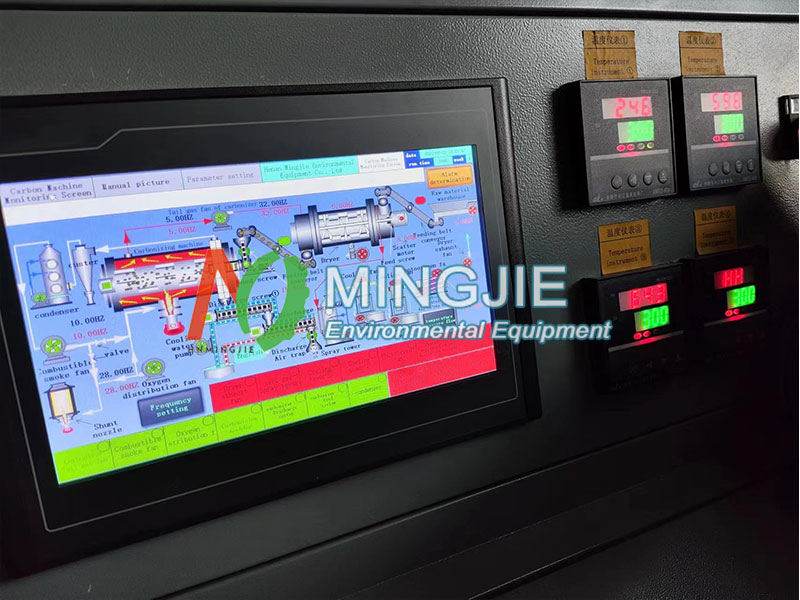
On the other hand, the integration of pyrolysis technology with other cutting-edge technologies, such as artificial intelligence, big data, and the Internet of Things, is strengthened to achieve intelligent management and remote monitoring of the pyrolysis process.
The operating parameters of the pyrolysis equipment and the quality of the pyrolysis products are monitored in real time through sensors. The data is analyzed and processed using artificial intelligence algorithms, and the pyrolysis process parameters are adjusted in a timely manner. This can ensure the stable operation of the pyrolysis process and the consistency of product quality.
Cost of Pyrolysis in Solid Waste Management
The cost of pyrolysis in solid waste management is relatively high, including pyrolysis equipment investment, operation and maintenance, energy consumption and other aspects. Pyrolysis equipment has high requirements, and has strict requirements on the high temperature resistance, corrosion resistance and sealing of materials, which increases the production cost of pyrolysis equipment.
The one-time investment in pyrolysis equipment is large, which may be difficult for some companies with limited funds to bear. During operation, a large amount of energy is needed to maintain the high temperature conditions required for pyrolysis, which increases the processing cost.
At present, pyrolysis plants in solid waste management on the market are mainly divided into batch pyrolysis plants and continuous pyrolysis plants. The cost of batch pyrolysis equipment is much lower than that of continuous pyrolysis equipment.
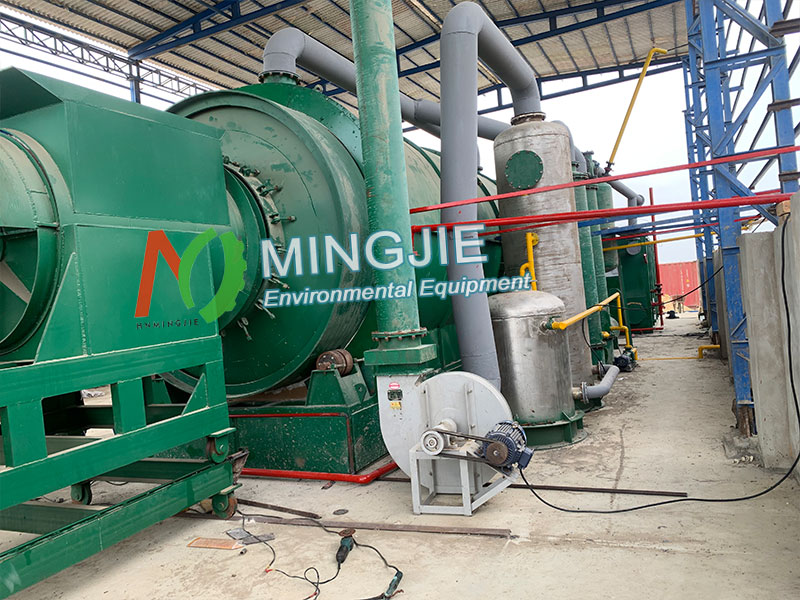
Pyrolysis Plant Manufacturer
Mingjie Group has provided customized environmental protection solutions to more than 200 customers around the world. We have successfully implemented a number of large-scale pyrolysis in solid waste management projects in more than 30 countries.
Asia: China, South Korea, Philippines, Thailand, Vietnam, Malaysia, India, Pakistan, Uzbekistan, Iraq, Lebanon, Bahrain, etc.
Africa: Egypt, South Africa, Tanzania, Botswana, etc.
Europe: Czech Republic, Finland, Romania, Poland, Greece, etc.
South America: Brazil, Peru, Chile, Paraguay, Spain, Colombia, Ecuador, Venezuela, etc.
North America: Canada.
Oceania: Australia.

